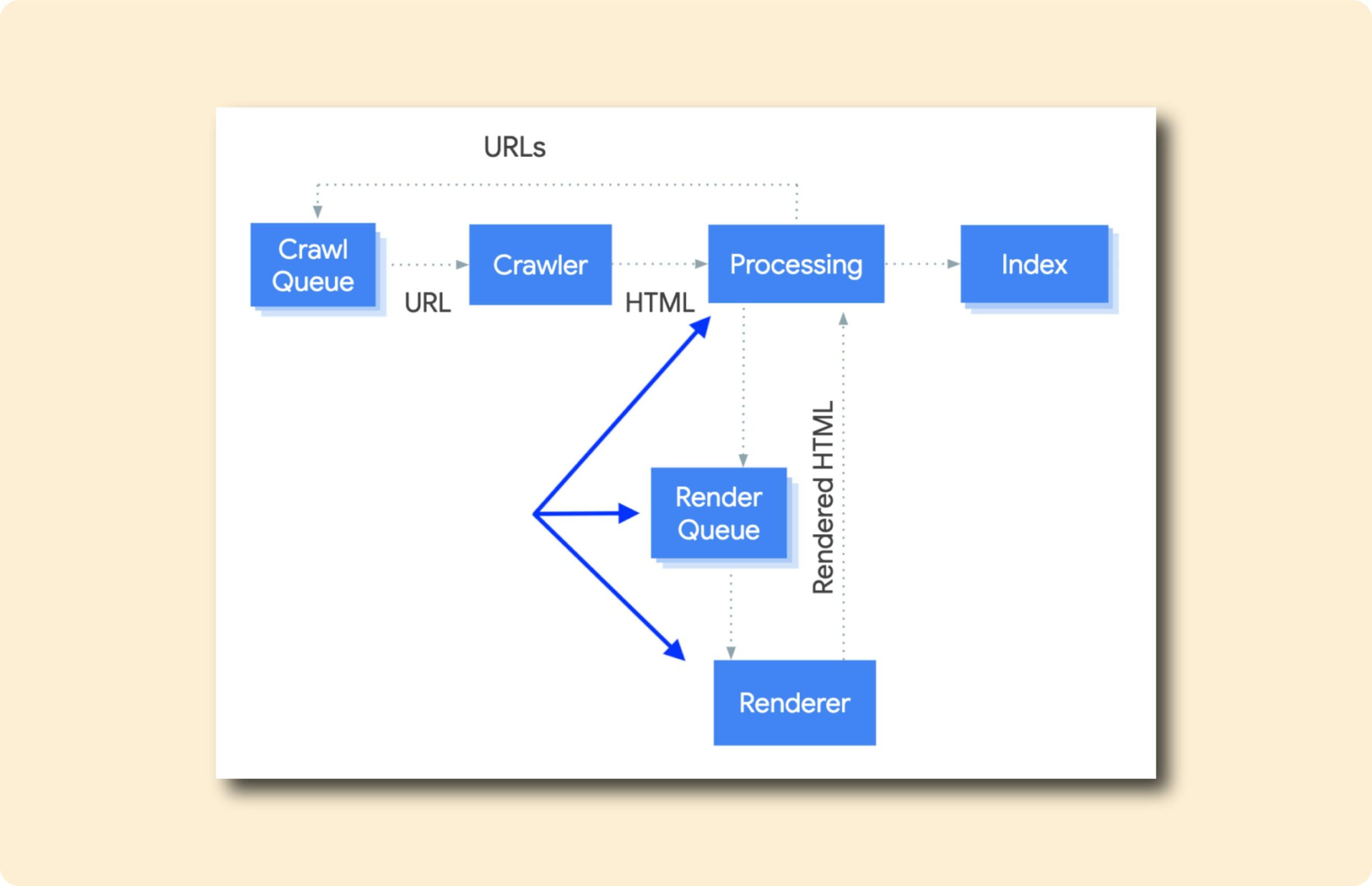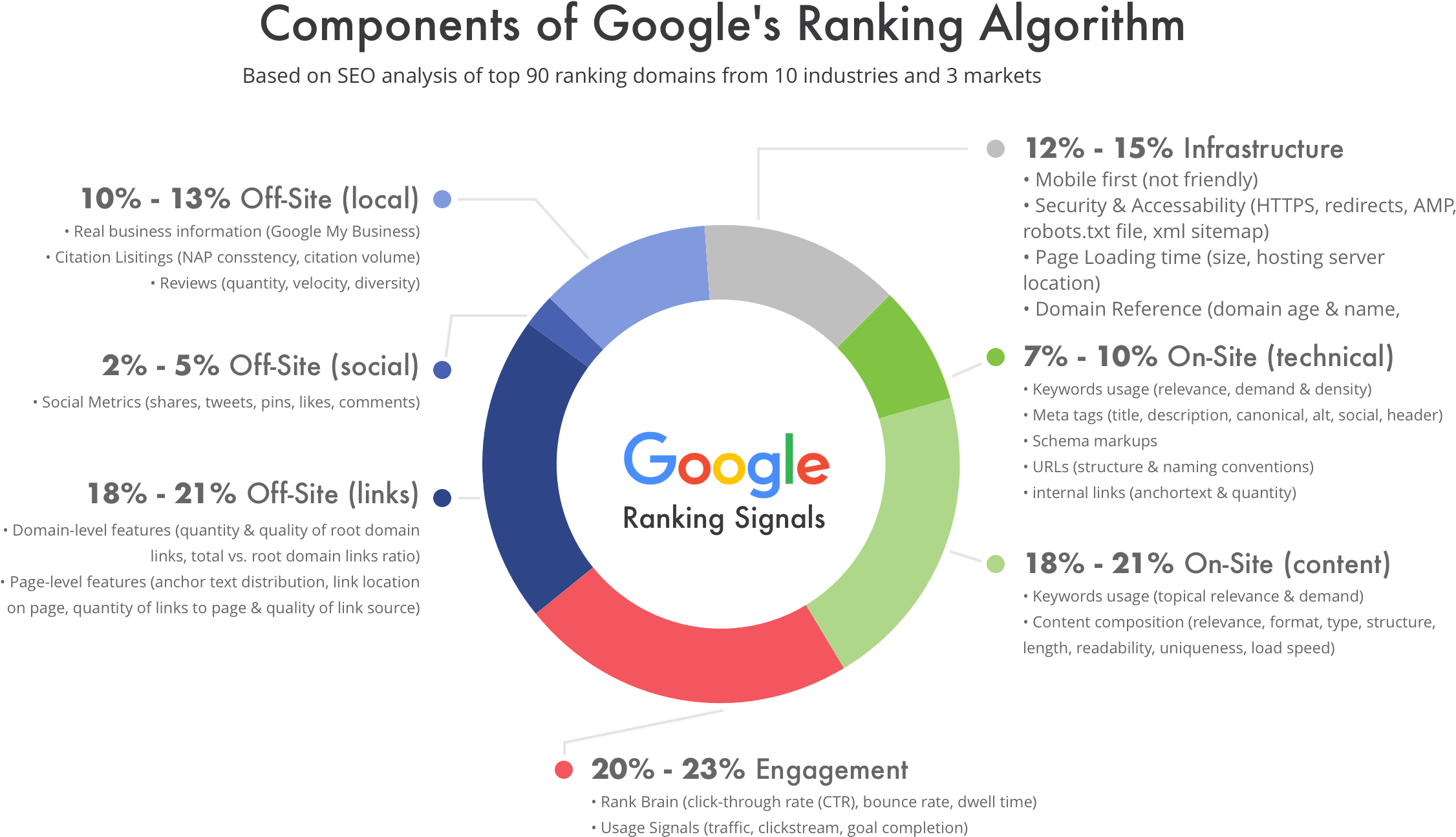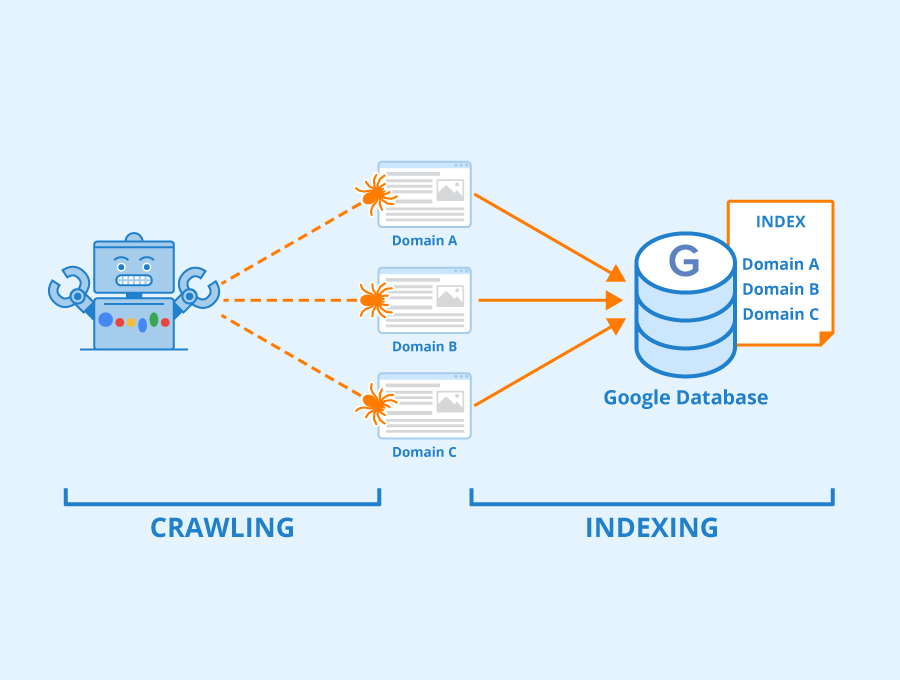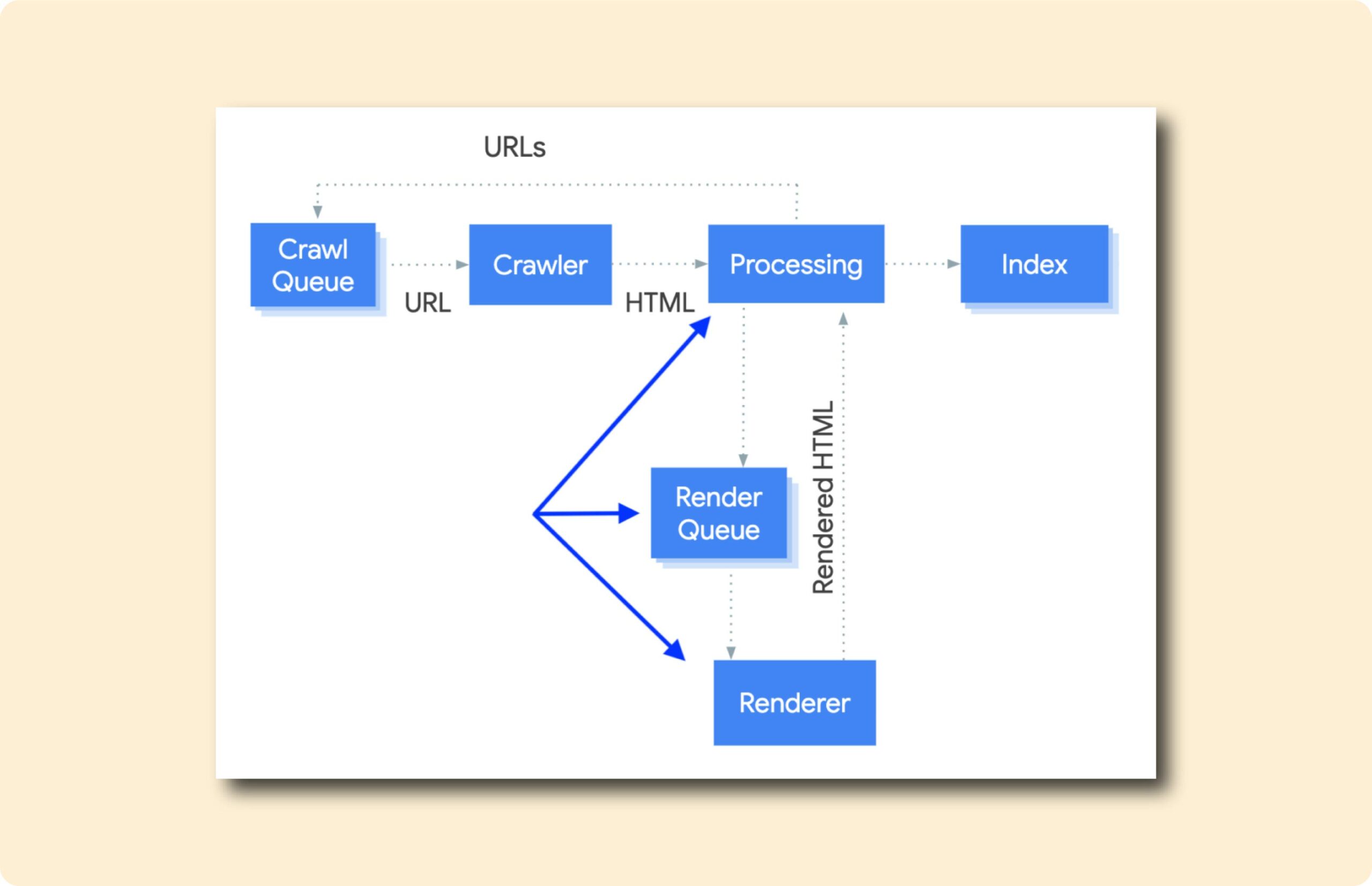As the digital landscape continues to evolve, businesses and marketers alike are seeking effective ways to enhance their online visibility. One critical component that plays a pivotal role in search engine optimization (SEO) strategy is indexing. Indexing involves the systematic process of storing, organizing, and making web pages accessible for search engines. But does indexing truly have a significant impact on SEO rankings? Recent data provides compelling evidence in favor of this practice, highlighting how proper indexing can enhance website discoverability, boost ranking positions, and ultimately lead to increased online traffic. Dive into our article to explore the intricacies of indexing and its profound effect on SEO success.
The Role of Indexing in Boosting SEO Rankings
Indexing is an essential part of the search engine optimization process. When a search engine indexes a website, it means the search engine has stored the web page in its database, making it easily retrievable for relevant search queries. Without indexing, a site would not appear in search engine results pages (SERPs), and hence, its visibility would be severely limited. The data supports the idea that proper and efficient indexing can significantly improve a site’s SEO rankings, primarily because it ensures that search engines can readily access, understand, and serve the content to users.
How Indexing Affects Search Engine Visibility
Indexing affects search engine visibility as it determines which pages the search engines can show to users. When a website is indexed correctly, its pages are available to be served in response to relevant queries, enhancing visibility on search engine results pages. If a page is not indexed, it remains invisible to users who search for relevant terms. This means the website loses potential traffic that indexing could have brought in from organic searches.
The Importance of Regular Content Updates for Indexing
Search engines prefer content that is fresh and regularly updated. Regular content updates are crucial for keeping a website indexed effectively. As new content is introduced or existing content is refreshed, search engines revisit the indexed pages to acknowledge these changes, which can influence rankings favorably. This process ensures that the content remains relevant and retains positioning power for target keywords, contributing to sustained or improved SEO performance.
Common Indexing Errors and Their Solutions
Common indexing errors that can hurt SEO include no-index tags mistakenly applied, broken meta tags, and poor site architecture that prevents crawlers from accessing all pages. These errors can stop search engines from indexing certain pages or whole sections of a site. Solutions involve conducting regular site audits to identify issues, properly implementing meta tags, maintaining a coherent site structure, and using Google Search Console to detect and fix any blocked resources or crawl issues.
Leveraging XML Sitemaps in Indexing
An XML sitemap is a roadmap of a website’s structure, guiding search engine crawlers to discover and index pages. It highlights the hierarchy and main pages of a site, contributing to faster and more efficient indexing. By submitting an XML sitemap through the Google Search Console, webmasters can ensure that all relevant pages are indexed promptly, even if those pages are not easily discoverable through internal links.
Measuring the Impact of Indexing on SEO Performance
The impact of indexing on SEO performance can be measured using analytics tools and search console data. Key performance indicators (KPIs) such as organic traffic, bounce rate, and time on site can provide insights into how well a site’s indexing strategy is performing. Particularly, increases in organic traffic can often be attributed to effective indexing strategies that enhance a site’s presence in relevant search queries.
| Factor | Impact on SEO |
|---|---|
| Proper Indexing | Increased visibility in search results |
| XML Sitemap | Improves crawling efficiency and indexing rate |
| Content Updates | Boosts ranking by maintaining relevance |
| Resolved Indexing Errors | Avoids penalties and ensures accessibility of content |
| Analytics Tracking | Measures the effectiveness of indexing strategies |
Does indexing affect SEO?

Indexing plays a crucial role in SEO by determining how well a website can be found by search engines. Without proper indexing, search engines may not be able to read a site’s content, meaning it won’t appear in search results, hindering any potential for organic traffic.
How Indexing Affects SEO Performance
Indexing directly influences a website’s SEO performance by governing its visibility in search engines.
- Search Engine Visibility: Without indexing, a website cannot appear in search engine results, severely limiting its potential reach to users.
- Content Discovery: Proper indexing ensures new content is discovered quickly, keeping the website fresh in search engine algorithms and relevant for users.
- Crawl Budget: Efficient indexing helps manage the crawl budget, ensuring search engines prioritize newly added or updated pages, enhancing SEO efforts.
Factors Influencing Indexing
Several factors impact the indexability of a website, which in turn affects its SEO.
- Quality of the Content: High-quality, unique, and relevant content is more likely to be indexed promptly and rank well in search results.
- Website Structure: A well-structured site, with clear navigation and logical hierarchy, facilitates easier indexing by search engines.
- Technical Elements: Elements such as `robots.txt`, `sitemap.xml`, and meta tags can guide search engines on which pages to index or ignore.
Steps to Improve Website Indexing
To enhance a website’s indexability and SEO, certain steps can be taken.
- Submit a Sitemap: Submitting a sitemap to search engines helps them understand the structure of your website and index it more efficiently.
- Use Robots.txt Wisely: Ensure `robots.txt` is correctly configured to avoid blocking important pages from being indexed.
- Regularly Update Content: Fresh, regularly updated content encourages search engines to index your site more frequently.
What increases SEO ranking?

Content Quality and Relevance
A critical factor that increases SEO ranking is the quality and relevance of content. Creating valuable content plays a key role in boosting search rankings as search engines aim to provide the best answers for users.
– Originality: Ensure your content is unique and adds value to the target audience, avoiding duplicate content across the web.
– Keywords: Identify and integrate the right keywords throughout your content, aligning with what users are searching for without overstuffing.
– User Engagement: Craft engaging content that keeps readers on the page longer and encourages interaction, which can signal search engines of its relevance.
Website Structure and Technical SEO
The architecture and technical aspects of a site influence search engines’ ability to crawl and index it efficiently. Well-structured sites are essential for enhancing SEO rankings.
– Mobile Optimization: Ensure your website is mobile-friendly, as a significant portion of searches come from mobile devices, affecting search rankings.
– Site Speed: Improve your site’s loading speed to reduce bounce rates and improve user experience, as this is a crucial ranking factor.
– XML Sitemaps: Create and maintain an updated XML sitemap to guide search engines in understanding your site’s structure, aiding in better indexing.
Backlinks and Authority
Building backlinks and establishing site authority are pivotal elements in improving SEO rankings. High-quality backlinks from reputable sources signal trust to search engines.
– Quality over Quantity: Focus on acquiring backlinks from authoritative and relevant websites, as a few high-quality links are more beneficial than numerous low-quality ones.
– Guest Blogging: Engage in guest blogging to gain exposure and backlinks, ensuring that content is relevant and widely seen by audiences.
– Internal Linking: Implement a strategic internal linking structure that helps distribute page authority across important pages within your own site.
What does indexing mean in SEO?

Indexing in SEO refers to the process by which search engines like Google, Bing, and others organize and store web pages. Once a webpage is indexed, it’s eligible to appear in the search engine results pages (SERPs) when users search for relevant topics.
How Does Indexing Work in Search Engines?
Indexing is a crucial step in how search engines process web content. Here’s how it typically works:
- Crawling: Search engine bots, known as crawlers, discover web pages by following links on existing pages and using sitemaps provided by webmasters.
- Analyzing: After crawling, these bots analyze the content of each page to understand its context, quality, and relevance to potential search queries.
- Storing: Relevant information is stored in the search engine’s index, a massive database, making it accessible for retrieval during search queries.
Why is Indexing Important for Websites?
Ensuring that a website’s pages are indexed correctly is vital for visibility in search engine results. Indexing is important because:
- Invisibility Without Indexing: If a page is not indexed, it won’t appear in search results, cutting off potential traffic.
- Impact on SEO Performance: Proper indexing allows pages to be evaluated for relevance, directly influencing SEO rankings and visibility.
- Optimization Opportunities: Understanding index status enables webmasters to optimize pages for better crawling and indexing.
How to Ensure Proper Indexing of Your Web Pages?
Optimizing web pages for efficient indexing enhances their presence in search engine results. Here are steps to ensure proper indexing:
- Use a Sitemap: Submit a sitemap to search engines, guiding crawlers to all the important pages on your site.
- Optimize Your Robots.txt: This file instructs search engine crawlers about which pages to crawl and which to ignore.
- Regular Updates: Keep your content fresh and regularly updated to encourage search engines to index your site more frequently.
Which type of content is most effective for improving SEO rankings?
The most effective type of content for improving SEO rankings has evolved over time but consistently includes elements that promote engagement, relevance, authority, and shareability. Here is a detailed exploration of content types that significantly impact SEO:
High-Quality and Well-Researched Blog Posts
Well-crafted blog posts remain a cornerstone of effective SEO content. They should provide informative and valuable insights that resonate with search intent.
– Depth and Quality: Content should be in-depth, comprehensive, and well-researched, providing a full exploration of the topic.
– Keyword Optimization: Use relevant keywords naturally throughout the content, including in headings, subheadings, and body text.
– Engagement and Readability: Ensure that content is engaging with a clear, logical structure, using images, videos, and infographics to enrich the text and break up large blocks of text.
Listicles and How-To Guides
Listicles and how-to guides are popular due to their structured format and ability to address specific queries.
– Clear Structure: Present information in a list format which is easy to scan and digest, making it attractive to readers.
– Instructional Detail: Provide step-by-step instructions or clear listings that answer user queries succinctly and comprehensively.
– Engagement Tools: Use bullet points, numbered lists, and supporting images or videos to enhance the content’s utility and attractiveness.
Evergreen Content
Evergreen content is content that remains relevant and valuable over a long period, not tied to current events or trends.
– Timeless Topics: Focus on topics that don’t often change over time, ensuring continuing relevance to a wide audience.
– Periodic Updates: Although evergreen is timeless, periodically updating the content to refresh data or insights can help maintain its relevance.
– Authority and Shareability: This type of content establishes authority and tends to attract more backlinks and shares, boosting SEO performance.
Frequently Asked Questions
What is the role of indexing in SEO?
Indexing plays a crucial role in SEO as it ensures that a website’s pages are included in a search engine’s database. When a page is indexed, search engines can easily retrieve it and present it in response to relevant queries. Without proper indexing, even the most optimized and content-rich pages remain invisible to search engines, resulting in poor web visibility and diminished organic traffic. By facilitating the inclusion of pages in search engine results, indexing helps sites gain more exposure and potential customer engagement.
How does indexing affect search engine rankings?
Indexing directly affects search engine rankings by making content discoverable to search engines. When a page is indexed, it is analyzed for its relevance and quality. The more effectively a page is indexed, the better its chances of ranking higher for relevant keywords. Search engines use complex algorithms to evaluate indexed content, considering factors such as keyword density, site structure, and backlinks. By ensuring pages are correctly indexed, you improve their likelihood of securing higher positions in search engine results, thereby increasing visibility and traffic.
Can poor indexing lead to lower SEO performance?
Yes, poor indexing can significantly impact SEO performance negatively. If important pages are not indexed, or are indexed incorrectly, they will not appear in search results. This means that search engines have no way of evaluating these pages, and they miss out on generating potential search traffic. Furthermore, poor indexing can also lead to crawling issues, where search engines struggle to explore a website efficiently, preventing the discovery of new or updated content. This can result in a decrease in organic search visibility and ultimately harm overall SEO efforts.
What strategies can improve website indexing?
Several strategies can be employed to improve website indexing. First, ensure that the website has a clean and efficient URL structure, as this aids search engines in navigating and categorizing content easily. Submitting a sitemap to search engines can significantly assist in ensuring all pages are acknowledged. Implementing internal links effectively can also enhance indexing by connecting various pages and guiding search engines. Regularly updating content and ensuring it is rich with relevant keywords will ensure search engine interest, enticing them to index new information. Lastly, engaging in backlinking from reputable sites can further encourage indexing as it showcases the website’s authority and trustworthiness.

